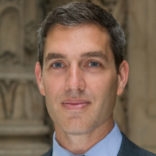Sitting alongside thousands of New Yorkers in St. Peter’s Basilica, I was filled with pride and affection as I witnessed His Eminence Timothy M. Dolan’s elevation to the rank of cardinal.
For those seeking insight into Cardinal Dolan’s direction for the future, his remarks to the College of Cardinals last Friday are well worth reading. For the Jewish community of New York, his speech also provides an intriguing new possibility for Jewish-Catholic cooperation.
Entitled “Between Missio ad Gentes and the New Evangelization,” Cardinal Dolan makes a critical distinction between efforts to missionize within and beyond the Catholic community. As important as the latter may be to the mission of the Church, Cardinal Dolan’s focus appears to be on the former, in his words “believers and cultures where the salt of the gospel has lost its tang.” Citing the principle, “Nemo dat quod not habet” (“one can not give what one does not have”), before turning to outreach (ad extra), the Church must first “stir the flame” of those within (ad intra) — a mission directed “not only to New Guinea but to New York.”
Jews will sense an immediate point of identification with Cardinal Dolan’s “in-reach” message to his flock. Jewish leadership also agonizes over those in our midst for whom “secularism has choked the seed of faith.” Jews and Catholics alike believe that religion must serve as a counter-cultural corrective to the prevalent hedonistic and consumeristic mindset offered by secularism. Our turn to ritual, sacred text and God signal an abiding belief that religion should never be reduced to a mere self-help section in a bookstore. Our laws, traditions and beliefs are intended to address the questions embedded within every searching, human soul.
Of course, neither community is immune to the challenge of fundamentalism. At one and the same time we ask that our faith be passionate and authentic but also infused by an abiding humility that God’s Will remains forever beyond the reach of any of us. “Ever ancient and ever new,” Jews and Catholics share the paradoxical expectation that our faith will both transcend and address our human condition.
In my weekend in the Vatican, I learned that Catholics and Jews share a remarkable list of common challenges. Catholics struggle with the gap between the Vatican and the average Catholic in the American pew, angst ridden over the future of a global Catholic community with the Vatican at its center. To some degree, this conversation shares the contours of our own Jewish “Peoplehood” conversation, including “distancing theories” between American Jewry and Israel and the degree to which the Israeli rabbinate at all reflects the condition and aspirations of diaspora Jewry.
So too, Jews and Catholics share a desire to find language by which we can affirm our respective faiths while validating the integrity and dignity of the “other” in our midst. We seek to create cohesive communities that are also inclusive and invested in matters well beyond parochial self-interest.
Furthermore, both communities are publicly and privately struggling to develop the language and tools to build relationships in the Muslim world with the hope of cultivateing robust dialogues and partnerships amongst all the Abrahamic faiths.
Finally, American Jews and Catholics share the belief that while the demands of our faith should inform the public square, we must also stand vigilant against any one faith possessing coercive influence over others. As evidenced from recent headlines, this is not an easy needle to thread. Both communities understand that while “freedom of religion” was guaranteed by our country’s founding fathers, ‘freedom from religion’ is neither necessary nor desirable in our public discourse. Even regarding those issues on which we may not agree, Jews and Catholics can provide a much-needed model for value-based conversations that remain fiercely protective of the architecture of our American democracy.
The Jewish-Catholic dialogue has been one of the most fruitful interfaith engagements of the last 50 years. The agenda is by no means complete, and there continue to be points of major and minor concern in need of attention. Nevertheless, with Cardinal Dolan, the Jewish community would do well to initiate a “best-practices” dialogue with our Catholic brothers and sisters. Both communities worry over the faith of our children, the texture of our families and our shared humanity. Like Cardinal Dolan himself, we seek to be defenders of the faith while remaining aware and attentive to our common human condition. Let us open this new chapter in earnest — there is not a second to waste.
Rabbi Dr. Elliot J. Cosgrove is the spiritual leader of Park Avenue Synagogue and the Anti- Defamation League’s rabbinical advisor on interfaith affairs.
The New York Jewish Week brings you the stories behind the headlines, keeping you connected to Jewish life in New York. Help sustain the reporting you trust by donating today.





